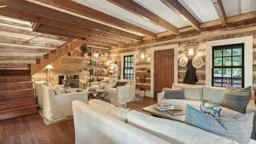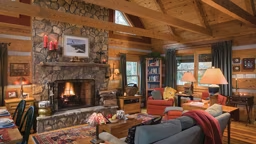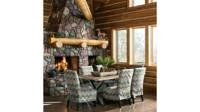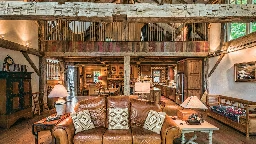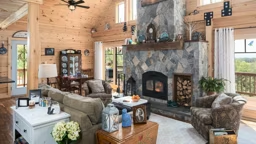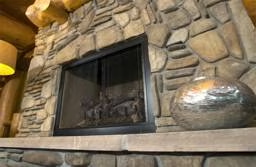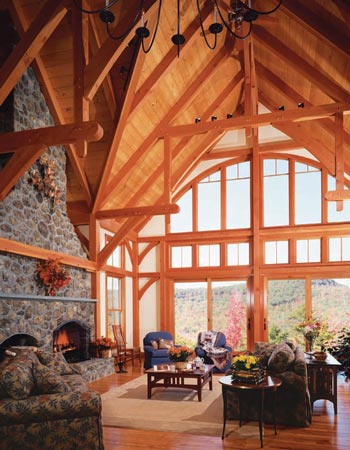 1. Write a list of activities you plan for the room. Include a maximum number of people you think you'll host on a regular basis, such as holiday parties or children/grandchildren visits. Include a column for "don't wants," such as watching TV (you might rather have TV watching and video playing in a loft or different room) or office work.
1. Write a list of activities you plan for the room. Include a maximum number of people you think you'll host on a regular basis, such as holiday parties or children/grandchildren visits. Include a column for "don't wants," such as watching TV (you might rather have TV watching and video playing in a loft or different room) or office work. 2. Plan the location activities in the room that can take place at the same time — a reading nook behind a set of posts supporting the second floor, for instance, or an area for the kids to do puzzles or play board games. This approach can help you build in traffic patterns that eliminate bottlenecks when you're entertaining a group.
3. If the great room will be used frequently or for multiple activities, look at noise-reduction techniques. Because of sound's reflective properties, people in the loft might hear what's going on at the other end with perfect clarity. Designing the great room with multiple roof angles can be expensive, so think about interior design touches such as hanging textured quilts over banisters or using carpeting, plants, or furniture to mask ambient noise.
4. Be flexible on great-room size. The great room typically isn't the most expensive room in a log home, unless you plan on a massive natural-stone fireplace. If you need to add space to a kitchen or bonus room, reducing the size of the great room is an easy option. To make a modest great room feel bigger, design in plenty of standard-sized windows — standard windows will save money over large expanses of custom glass.
5. You have cost-saving options. Other budget-friendly design tips include planning for a gas fireplace rather than a full-height custom masonry job, and designing your home's roof structure to require fewer large-span trusses or incorporate milled rafters or laminated beams rather than hand-carved ones.
6. Be ready to modify during construction. Because great rooms tend to feature major spans of log, heavy ceiling beams, and large expanses of glass, you may end up with some minor surprises. "There are structural necessities in log home construction," says Denny Nelson of Bridger Mountain Log Homes. "Sometimes we might have to say to a customer, 'I'm sorry, but we've just got to put a post here to pick up the weight of this section, or double up these timbers or use a larger-span log that will take up more of your floor plan.'"
This article ran longer, with multiple photos, in the March 2008 issue of Country's Best Log Homes.




